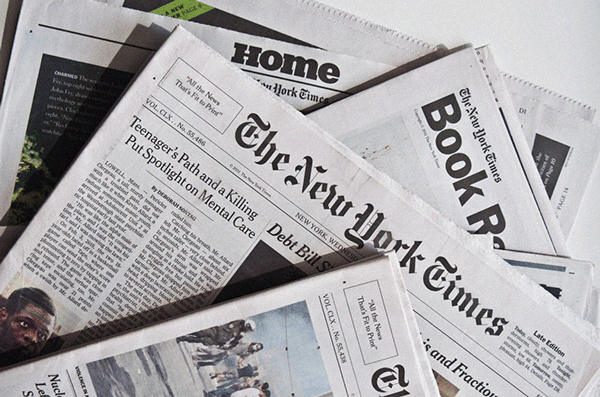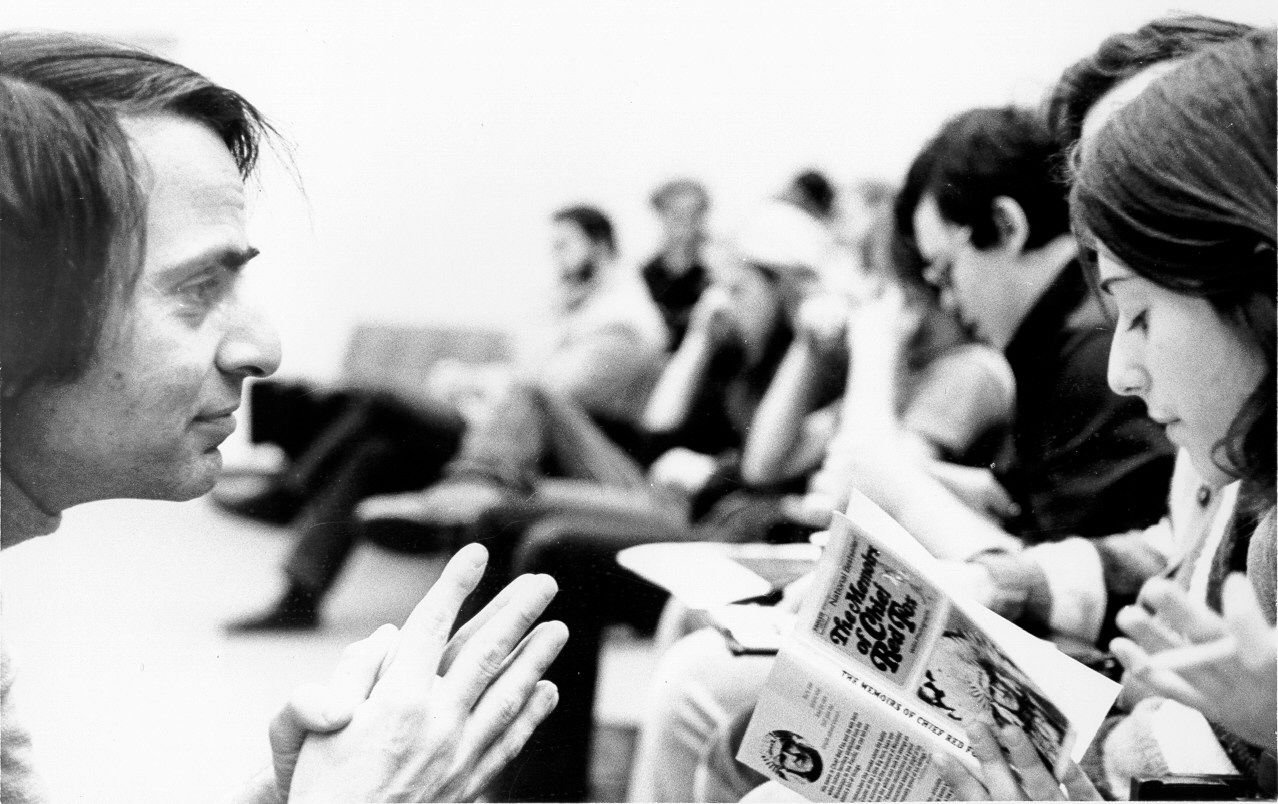Since the beginning of 2017, The New York Times has continued to expand its already robust book coverage. More recently, New Yorkannounced that it would triple its book coverage. In October, The Atlantic launched a Books section and a newsletter, “The Books Briefing,” with plans for “additional products.” Even BuzzFeed is getting in on the action: in November, they launched an online book club, complete with an attendant Facebook group and newsletter.
For the Times and The Atlantic, the changes arrived at a moment of substantial growth for each publication as a whole.
In February, The Atlantic announced a sizeable editorial expansion, spurred on by a significant post-election boost in readership and by Emerson Collective, the philanthropic organization that acquired a majority stake in the magazine last summer. The new Books section, TheAtlantic.com editor Adrienne LaFrance said, is part of an enlargement of the site’s culture coverage, as well as a natural extension of the magazine’s literary roots. According to a spokesperson, in the month since its launch, the section was already receiving a 20-percent higher median view time than other sections of the site.
The Times’ book coverage used to operate out of three different departments—the business desk, the culture desk, and the Book Review. Now, it is centralized under the stewardship of editor Pamela Paul, who attributes the change, in great part, to the growing number of online Times readers.
“In a digital world, where people aren’t encountering these distinct sections of the paper in discrete parts of this physical newspaper, it becomes very confusing,” Paul says. “You would basically have three separate departments covering books totally independently and yet, in the eyes of most readers, in a single space.”
Unlike other newsrooms, the Times still has the manpower necessary to run a freestanding newspaper book review—the last of its kind in the country—which requires reading through thousands upon thousands of galleys. The Book Review is sticking to its core strengths, such as serious reviews and reportage, because it has the resources—including staff critics and full-time publishing reporter—to outperform competitors.
“Given the competitive landscape, and frankly, the fact that no one else was doing what we were doing, there was a real opportunity to do more with books,” Paul says.
Some books, such as reissues, translations, anthologies, or visual books, don’t make sense to review, but are still worth covering somehow, Paul says. Thus, the Times has also been reconsidering the way it approaches book coverage, whether through newsy recommendations, Instagram, its podcast, or more essays that integrate books into the culture-at-large.
“In the past, when a book came into the Book Review, the question we would ask is, ‘Does this book deserve to be reviewed? Should we review this?’” Paul says. “Now the question is, ‘Does this book merit coverage? And if so, what does that look like?’”
“In the past. . . the question we would ask is, ‘Does this book deserve to be reviewed? . . . Now the question is, ‘Does this book merit coverage?’”
Boris Kachka, the books editor at New York, whose web audience has increased dramatically over the past year, is working on answers to those same questions. He and New York’s editor-in-chief, Adam Moss, started planning for their expansion in June, after noticing significant feedback in reader surveys about the site’s lack of book coverage.
New York’s move is less about a sudden burst in demand for books, Kachka suggests, as it is about carving out a space to cover those that may get “relegated to the sidelines of the categories under which they fall”—like, say, a novel that’s only written about on Vulture in relation to its big TV adaptation. As such, he has “somewhat free reign” to hire freelancers to write stories. (New Yorkhas just redesigned its website, and instituted a paywall.)
This isn’t dissimilar to the modus operandi of BuzzFeed’s Books section, which was founded in 2013 on the basis of enthusiasm.
“I was just at a panel about the future of books criticism at BookExpo, and almost everyone on the panel was saying this is something we have such limited space for, so why waste it on books we’re not recommending?” BuzzFeed News Books Editor Arianna Rebolini says. “As far as the online world, of course, you’re not limited, but time is. And are you going to put your time into something that’s not going to share well?”
Like the Times’ relatively new “Now Read This” book club, BuzzFeed’s free “virtual book club” is an analog solution updated for a digital world—a forum for people to meaningfully discuss and dissect the same book online when it’s much less feasible for people to do so in real life, at least not the way readers might’ve when Portnoy’s Complaint was published, or the way fans, oftentimes sitting in the same room as one another, can when a new Game of Thrones episode airs. BuzzFeed claims the club will actually net them money, due to Amazon affiliate links. (Other sites, including the Times and New York, use these links as well.)
In some ways, mainstream book coverage is coming down from its historically lofty perch to join the rest of arts coverage, catering less to the intelligentsia and more to the casual reader, who may not be interested in literary fiction or nonfiction. With so much to watch and read and listen to—and so many people chiming in on what to watch and read and listen to—it’s no surprise readers are hungering for a trusted source who can point them in the direction of books tailored to their interests. And those same readers may be looking for the kind of full-court, blogosphere press typically reserved for watercooler shows like Sharp Objects and meme machines like A Star Is Born.
“You look at the way Vulture activates fan coverage, the way they seamlessly cover Hollywood and the industry and then a franchise, and then services the fans of that franchise, and then comes up with ways of talking about plot twists, spoiler specials and things like that…” Kachka says. “People who do read books, which may comprise a niche smaller than the tent-pole movie niche, they still want to be served in that way.”
Though book criticism has always provided a lens through which to filter the news of the day, there also appears to be a clamoring for stories whose primary function is to shed light on today’s sociopolitical landscape. It makes sense from a “clicks” standpoint as well: you’re much more liable to read and share this pithy, much-debated reexamination of Joan Didion’s legacy in the Trump erathan you would’ve a traditional review of one of her books.
Publications are responding to the dearth of coverage previously given to non-white male writers, too. Earlier this year, inspired in part by the disproportionate number of male authors endorsed in the Times’ “By the Book” column, Electric Literature launched a “Read More Women” campaign, highlighting stories written by women about books written by women, and asking prominent writers to recommend books by women.
“It’s one thing for us to be quietly publishing more women and [stories] about women,” Jess Zimmerman, the site’s editor in chief, says. “It’s another thing to frame it as a rallying cry, and I think that’s the thing that people really responded to.”
Electric Literature’s campaign is especially effective during a moment where most conversations take place, and are driven by, social media. Ultimately, we may not have time to read more books, but we are looking for more ways to digest everything that’s going on.
“We’re constantly bombarded with tiny bits of information that are fleeting, ephemeral, occasionally inaccurate, easily forgotten,” Paul says. “I think books are like the antidote to that. Books contextualize those little bits of news. They offer a long view. They offer historical perspective. They offer a broader context.”
Given the deluge of movies, TV, and tweetstorms, it may be more important than ever for publications to help books accomplish these goals. But the best format for them to do so is likely no longer the traditional, single-book, literary review. To break through the noise, editors must translate old-fashioned book coverage to the lingua francas of today’s impossibly paced media climate: shareable lists, essays, digestible Q&As, podcasts, scannable email newsletters, hashtags, Instagrams, even book trailers.
“You can have a blog post that at least draws people’s attention to the book. Maybe they’ll read it, maybe they won’t. But at least the ideas from the book will filter through into the conversation,” Kachka says. “I think it’s important to get those ideas in, so books can have an influence beyond their readership, whatever it might be.”







 CRITICISM
CRITICISM 